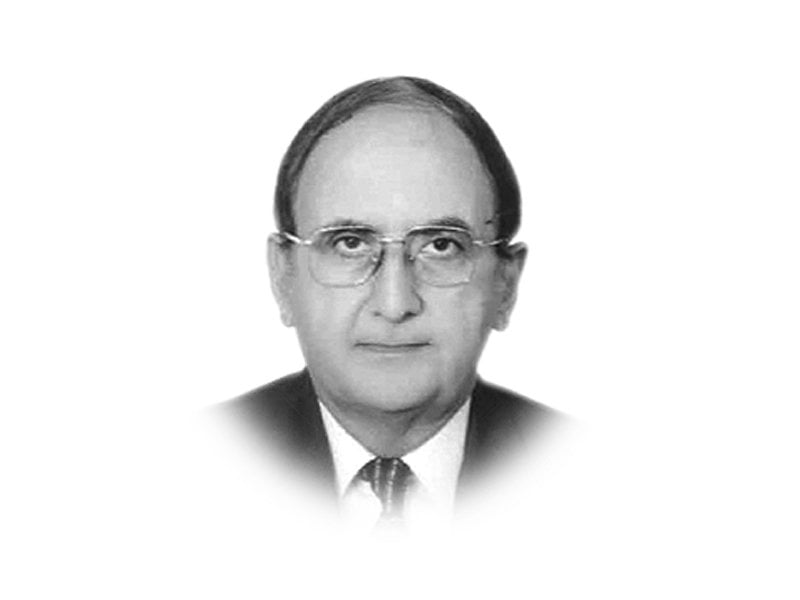
Pakistan has so far muddled through different crises over the last four decades. A long-term perspective has been missing, mainly due to the paucity of a deep thought process for shaping diplomacy. Ideally, the country should adopt a coherent approach towards the issues and problems in the region, with an eye on the future. This calls for a unity of mind and a strong understanding of the dynamics of regional and global politics as well as a realistic assessment of Pakistan’s strengths and weaknesses. A prudent foreign policy cannot be based on a wish list. It must be based on a realistic assessment of possibilities. The objective should be to either maximise one’s gains or to engage in damage control and at the same time, be able to wriggle out of difficult situations through astute diplomacy.
Pakistan faces two difficult issues: the management of its relations with India against the backdrop of terrorist activity that serves to subvert this relationship, and the delicate balancing act of extricating itself from being a party to the current Saudi-Iran struggle for regional eminence. We are under a great deal of pressure from Saudi Arabia to fully support it in its conflict with Iran.
The prospects for removing current tensions between India and Pakistan were brightened through quick diplomatic footwork by the two countries, starting with the brief informal meeting of the two prime ministers on the sidelines of the international environment conference in Paris on November 30, 2015. The full confirmation of the changed diplomatic environment between the two countries came when India’s Prime Minister, Narendra Modi, visited Lahore on December 25. However, the Pathankot attack has raised a critical question of who has the veto power over the relationship between Pakistan and India. Is it the hardline, violent religious groups or is it the governments of the two countries? It is beyond the scope of this article to critically examine whether the attack was undertaken by a militant Pakistani group or whether it was contrived by a hardline Indian entity with the objective of disrupting the planned talks. If these talks get disrupted, then these so-called non-state entities will have succeeded in imposing their policy choices on both governments. The Indian government may be tempted to strengthen itself domestically by walking away from the talks. This may give it some immediate domestic gains, but in the long run, India will hurt itself. This would amount to making India’s Pakistan policy a hostage to these extremist groups.
The Pathankot episode should also be a matter of concern for Pakistan. India has blamed one Pakistani militant group for the incident, and one Kashmiri group, based partly in Azad Kashmir, has claimed responsibility. If it is verified that a Pakistan-based group staged the attack, the country’s civilian and military authorities should take this very seriously. If these groups can challenge the Pakistani state in one area of policy, they can one day take it on in other areas too, including domestic policies and actions. This will make Pakistan a dysfunctional state. It will become a multi-authority state, with each power centre asserting itself in different territorial units or dictating its terms to the faltering state government. The long history of hostility and conflict between Pakistan and India cannot be used as a pretext by Pakistani militant groups to disrupt the country’s foreign policy. The government and political parties should not compromise with these groups in order to win their votes. Long-term interests call for the restoration of the primacy of the Pakistani state and enforcement of a constitutional political order in a democratic and tolerant context. This is not possible until hardline religious and violent groups are brought under the control of the state.
The other issue that challenges the political and diplomatic skills of the Pakistani leadership is to avoid getting embroiled in the Saudi-Iran conflict. Pakistan’s official stance has Saudi leanings, but avoids a complete identification with Saudi Arabia. The Saudi leadership is applying strong diplomatic pressure on Pakistan for seeking its full support. Long-term Pakistani interests demand a well-formulated non-partisan disposition on the Saudi-Iran dispute. We also need to avoid any statement that directly or indirectly reflects negatively on Iran. We need to pursue the Saudi-sponsored 34-nation military alliance with caution because there is a lot of ambiguity about its aims and objectives, organisational structure and the ways and means by which military cooperation can be brought about between such a diverse array of countries. The command structure of military and intelligence systems under this alliance is not yet clear.
The current Saudi-Iran conflict is a struggle for power in the region. It is also shaped by Iran’s continued radical revolutionary zeal and Saudi Arabia’s growing internal insecurities since the beginning of the Arab Spring in 2011. Therefore, there is no reason for Pakistan to become directly involved in this conflict. Pakistan should advise restraint to both countries and suggest bilateral dialogue for defusing the conflict.
We should be working towards bringing down tensions on our borders and in the region so that we are able to pay more attention to dealing with our internal political, economic and security issues. We need to control internal violence and terrorism and tame the extremist organisations that employ religious discourse and jargon to justify violence. Pakistan must also work towards reducing its economic dependence on external sources by addressing the energy crisis, faltering industrial growth, a troubled agriculture sector, and increased poverty and underdevelopment. Pakistan’s salvation lies in seeking peace in and around it and putting its economic and political house in order.
Published in The Express Tribune, January 11th, 2016.
Like Opinion & Editorial on Facebook, follow @ETOpEd on Twitter to receive all updates on all our daily pieces.


1732266251-0/Josh-Brolin-(1)1732266251-0-165x106.webp)
1732266343-0/BeFunky-collage-(82)1732266343-0-165x106.webp)








COMMENTS (7)
Comments are moderated and generally will be posted if they are on-topic and not abusive.
For more information, please see our Comments FAQ